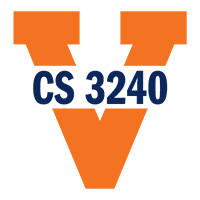CS 3240 Coursepack
Online Software Engineering Textbook by Will McBurney and Mark Sherriff
Online Software Engineering Textbook by Will McBurney and Mark Sherriff
We offer multiple courses in computer game design along with opportunities for undergradute research.
The Designing Empirical Education Research Studies (DEERS) project is an NSF-funded grant geared to help faculty learn how to better perform empirical scholarship of teaching and learning (SoTL) studies in their classrooms.
Podcast by Will McBurney and Mark Sherriff
Live Show presented on the SIGCSE TS Show Floor
Getting Involved with the SIGCSE Technical Symposium and Education Research
Published in ACM Transaction on Computing Education, 2022
The goal of this study is to characterize the reporting of empiricism in Computing Education Research literature by identifying whether publications include content necessary for researchers to perform replications, meta-analyses, and theory building. We answer three research questions related to this goal: RQ1) What percentage of papers in CER venues have some form of empirical evaluation? RQ2) Of the papers that have empirical evaluation, what are the characteristics of the empirical evaluation? RQ3) Of the papers that have empirical evaluation, do they follow norms (both for inclusion and for labeling of information needed for replication, meta-analysis, and, eventually, theory-building) for reporting empirical work?
Recommended citation: Heckman, S., Carver, J., Sherriff, M., and Al-Zubidy, A. "A Systematic Literature Review of Empiricism and Norms of Reporting in Computing Education Research Literature." ACM Transactions on Computing Education. Vol. 22, 1, Article 3 (March 2022), 46 pages. http://academicpages.github.io/files/paper1.pdf
Published:
This is a description of your talk, which is a markdown files that can be all markdown-ified like any other post. Yay markdown!
Published:
This is a description of your conference proceedings talk, note the different field in type. You can put anything in this field.
Course Website: https://www.cs.virginia.edu/~sherriff/cs2110/ - Taught: 2007-2012
A second course in computing with an emphasis on modern software development and principles central to computer science. Topics include software requirements, testing, object-oriented design, abstraction, encapsulation, recursion, and time-complexity.
Taught: 2007-2008, 2011-2013
Introduces the fundamental concepts for design and development of database systems. Emphasizes relational data model and conceptual schema design using ER model, practical issues in commercial database systems, database design using functional dependencies, and other data models. Develops a working relational database for a realistic application.
Taught: 2010-2016
A first course in programming, software development, and computer science. Introduces computing fundamentals and an appreciation for computational thinking. No previous programming experience required.
Course Website: http://f22.cs4720.org - Taught: 2009-2018, 2022
Mobile computing devices have become ubiquitous in our communities. In this course, we focus on the creation of mobile solutions for various modern platforms, including major mobile operating systems. Topics include mobile device architecture, programming languages, software engineering, user interface design, and app distribution.
Taught: 2015, 2024
This course is an introductory course in video game design and creation. We will focus on both the design and technical aspects of creating a game, from concept inception and prototyping through coding and playtesting. There will be a heavy focus on playing games and evaluating them. Students will also create games in the course using game building tools, such as GB Studio.
Course Website: http://f24.cs4730.org - Taught: 2013-2015, 2017, 2022-2024
This course will introduce students to the concepts and tools used in the development of modern 2-D and 3-D real-time interactive computer video games. Topics covered in this include graphics, parallel processing, human-computer interaction, networking, artificial intelligence, and software engineering.
Course Website: http://vampiregames.org - Taught: 2025
(Co-taught with Prof. Stanley Stepanic, Department of Slavic Languages and Literatures) This class will explore the origins of the vampire in the world of video games and how original folklore, over time, was altered. This will include an overview of the vampire’s movement into popular culture from old belief, how it first entered video games, and the most culturally significant games starting in the late 1970s and entering the modern era. Students will have the opportunity to explore both literature and video games to analyze how vampires and the lore surrounding them is represented and, through this, create a final portfolio that includes a literature and game review and a game they make themselves.
Course Website: http://s25.cs3240.org - Taught: 2009-2010, 2018-2025
Analyzes modern software engineering practice for multi-person projects; methods for requirements specification, design, implementation, verification, and maintenance of large software systems; advanced software development techniques and large project management approaches; project planning, scheduling, resource management, accounting, configuration control, and documentation. (Former title: Advanced Software Development Techniques)